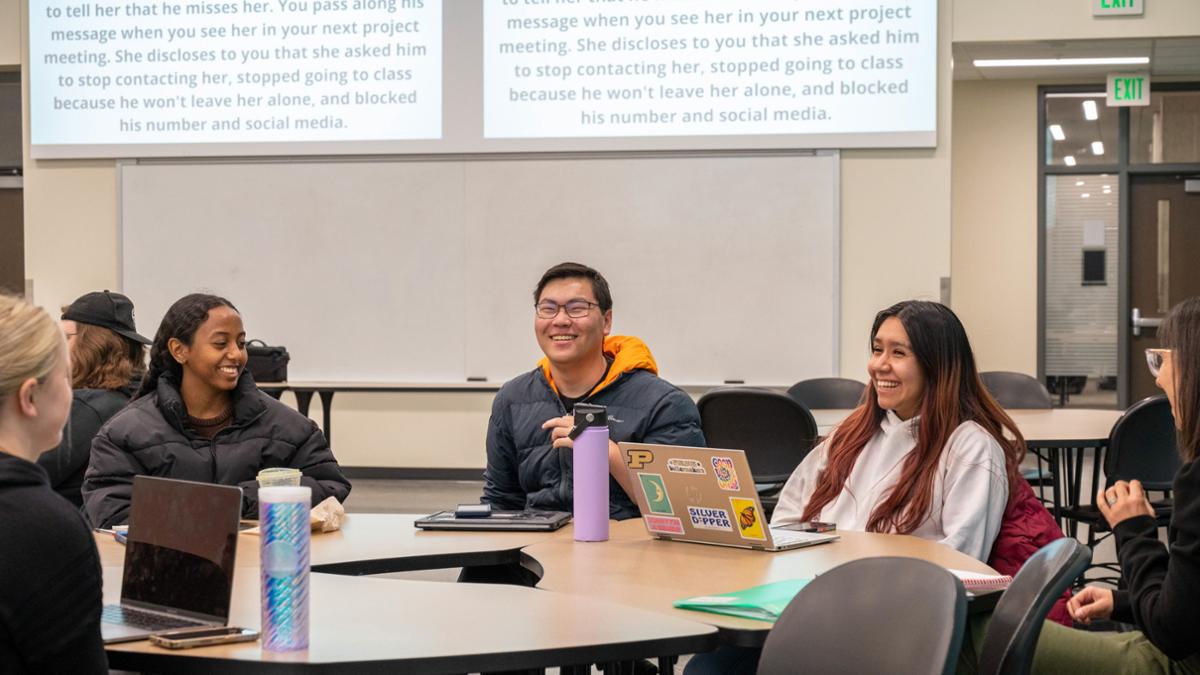


CARE workshops are free and available to the Purdue community by request only. To request one of the workshops below, please complete the CARE Workshop/Action Toolkit Request Form. To learn about our Action Toolkits, click here.
This workshop provides a brief overview of the services available at CARE, including confidential support, advocacy services, and prevention education.
Bystander intervention is an evidence-based strategy for preventing interpersonal violence. This workshop is designed to educate students about recognizing an unsafe situation, the different methods for safe intervention, and how to identify and mitigate the barriers that may prevent them from intervening in situations they determine to be unsafe.
Learning Objectives
Research shows that students are more likely to disclose experiences of interpersonal violence to informal sources, like their peers. This workshop is intended to educate the students about how to respond to peer disclosures of interpersonal violence.
Learning Objectives:
We often hear about toxic relationships and red flags, but how can we identify traits of unhealthy relationships in our lives if we don't know what healthy love looks like? This workshop is designed to increase our understanding of what healthy relationships look like, from friends to partners to family to roommates, and how to reflect on our own role within these dynamics.
Learning Objectives:
Note: All workshops are between 45-60min and include a brief overview of the services offered by CARE, unless otherwise specified.